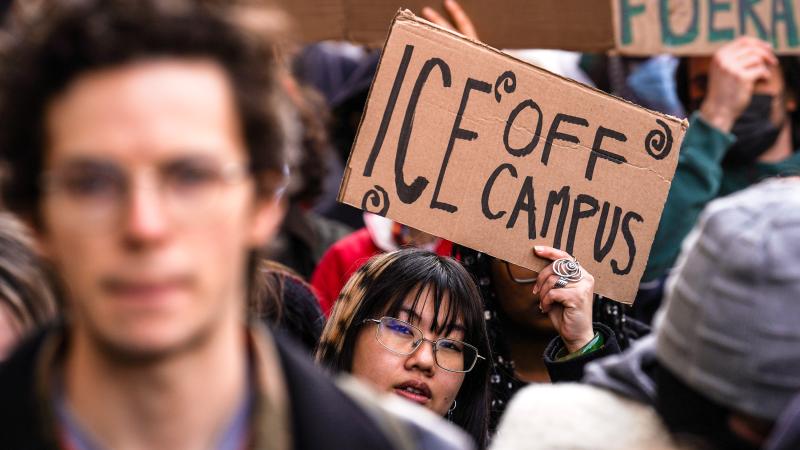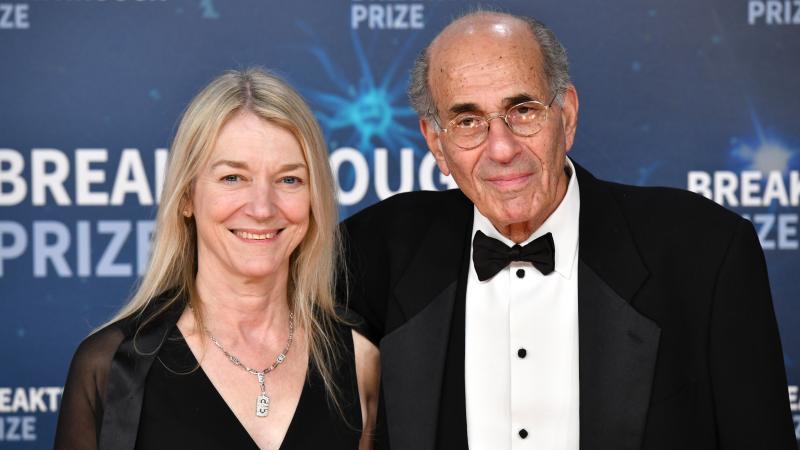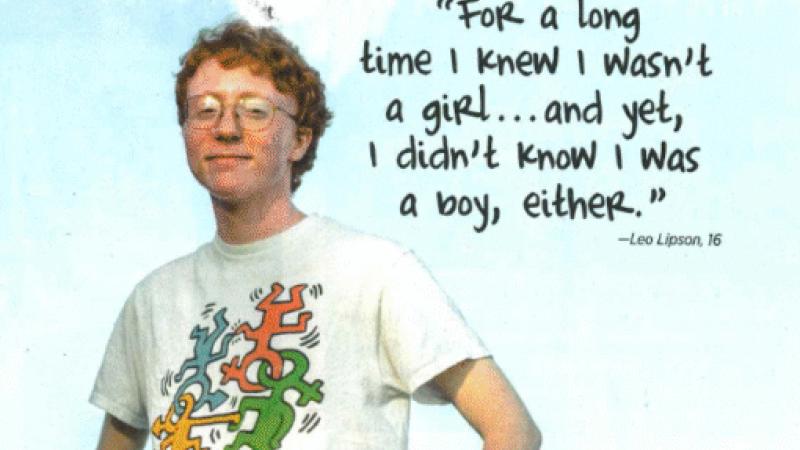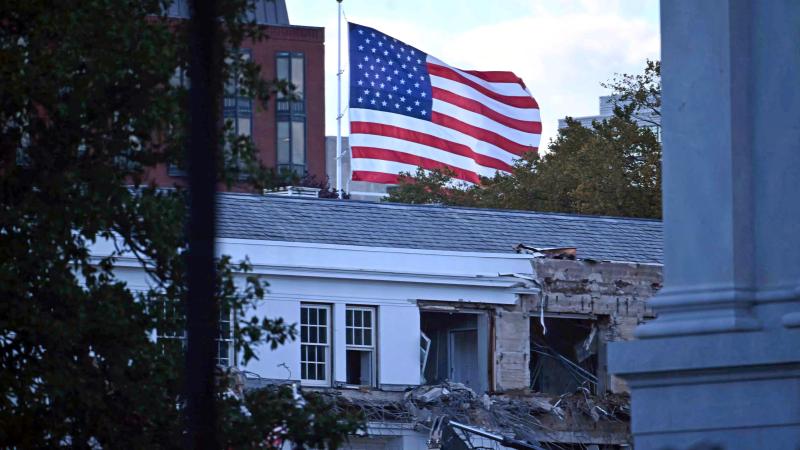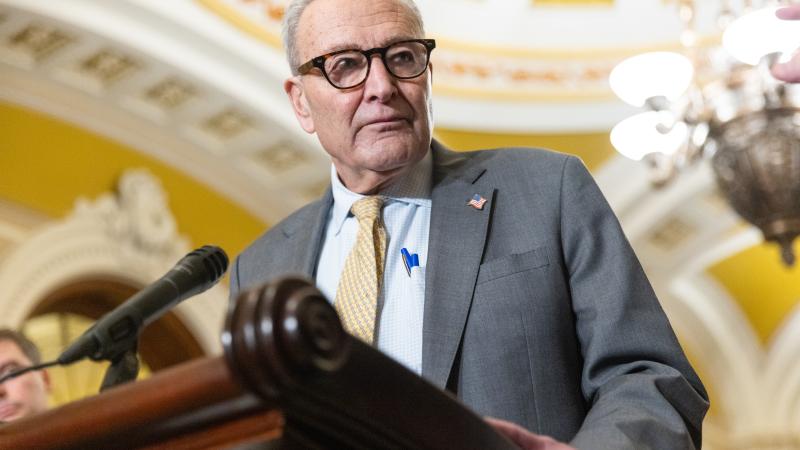Lawsuits challenge critical race theory in charter school curriculum, bias reporting in K-12
"It's not about learning - it's about being forced into this ideology," says lawyer for Nevada and Virginia families.
Gabrielle Clark and her biracial son sued his Nevada charter school to let him graduate without participating in a mandatory class they claim promotes hostility toward whites as a race.
Democracy Prep at the Agassi Campus (DPAC), part of the New York-based Democracy Prep Public Schools charter network, relented on the eve of a preliminary injunction hearing in April.
It let him opt out of the graduation requirement "Sociology of Change” and expunged his failing grade for refusing to participate, according to his then-lawyers at Schoolhouse Rights, a project of the International Organization for the Family. (The school said it gave him "the injunctive relief that he seeks," filing the details under seal.)
But the Clarks weren't satisfied with spending several months haggling with the school and going to court only to let William finish school with a clean academic record. They got new lawyers and amended the lawsuit to demand compensatory and punitive damages for harming William's college prospects, compelling speech and causing him emotional harm.
The family is also seeking a legally enforceable ban on the alleged practices used in the class, such as requiring students to disclose their various "identities" and labeling whites and Christians as "oppressors."
They asked the court to force Nevada's charter school authority, another defendant, to not reauthorize DPAC if it doesn't get rid of the challenged practices.
The Liberty Justice Center took over the Clark case in May. Multiple school districts are forcing students to go through these same "divisive" exercises, senior attorney Daniel Suhr told Just the News. "It's not about learning — it's about being forced into this ideology."
Suhr was heartened to see the Clark case cited in a recent binding opinion by Montana Attorney General Austin Knudsen to the state superintendent of public instruction. It shows that his case is "one of the leading indicators in the country" for the fight against pedagogy informed by critical race theory (CRT), Suhr said.
Knudsen's opinion banned classroom activities "in the name of" CRT and antiracism, such as racial segregation of students "in any capacity" and assigning blame to students on the basis of their race. He said it does not ban the teaching of "fraudulent curriculums" such as the 1619 Project, only activities that perpetuate and celebrate "racial stereotypes and division."
Suhr's group filed a similar suit this month against the Loudoun County School Board in Virginia to prevent the implementation of a bias reporting system. The suburban Washington county is "ground zero for the fight over this ideology," he said.
The suit claims Loudoun students are likely to face investigation for political expression such as support for former President Donald Trump, regardless of where it was made.
It's the first K-12 bias response team he's heard of, Suhr said, and its setup is worrying. Eligibility to serve as "Equity Ambassadors" was originally limited to nonwhite students, and a subsequent revision requires a "demonstrated passion for social justice" and commitment to "amplify the voices of students of color."
Regardless of eligibility, it's a "kangaroo court of handpicked students" with the power to recommend consequences from "naming and shaming" to formal punishments for hate speech and bullying, Suhr said.
The Supreme Court's recent ruling against a school district that punished a cheerleader for a profane rant on social media is "very helpful" to the Loudoun case, he said: The school district can't meet the "particularly high bar" for regulation of off-campus speech, and all nine justices recognized "students' viewpoints on political, social, and religious issues deserve full First Amendment protection."
"A handful of lessons in one class … that he disliked"
The Clarks' amended complaint, filed in May, alleged that when the Democracy Prep network took over the Agassi Academy, another charter school, it implemented a "civics" curriculum that was actually a front to teach students to "unlearn" what their parents taught them.
William's teacher ordered her "wonderful social justice warriors," as she called them, to identify their gender, racial and religious identities and determine which parts have "privilege or oppression" attached. The assignments were graded.
The teacher's materials had a list of oppressors and oppressed, with the former encompassing William's identities of half-white, male and Christian. (Though his mother is black, he is often presumed to be white.)
Students were then put in "breakout" groups to discuss their identities, and if supposedly privileged students refused to do so, that was deemed proof of their privilege. When William pushed back on presentation slides including "reverse racism doesn't exist," the teacher singled out his views for disapproval, chilling class discussion, the suit claims.
The defendants "ruined William's college prospects, which were built on prior years' hard work and good grades," and "show no intention of altering their program of compelled speech in the future" regardless of their last-minute accommodation for him.
The State Public Charter School Authority bears culpability because it knew or should have known the true nature of DPAC's civics curriculum through its compliance mechanisms, the Clarks claim.
The charter authority sought to extricate itself from the litigation earlier this month, telling the court its alleged failure to oversee DPAC's curriculum is devoid of factual evidence and William's graduation has mooted the case. Considering that DPAC's charter doesn't come up for renewal until 2026, any action by the charter authority "will have no effect" on William.
DPAC and the charter network challenged the Clarks' claim that William received a failing grade for refusing to divulge and feel shame about his identities in front of his peers.
He would have received "full credit" if he had written that he "disagreed with the premise" of the exercise, yet he stopped attending and doing coursework altogether, they said in a motion to dismiss. His grade was not the result of "retaliation," they claimed.
The school and network disputed that the Sociology of Change class taught students about oppressors and oppressed identities, but rather "dominant" and "submissive" groups. The Clarks simply disagree with course content, which does not prove he suffered discrimination, and William has no right to privacy in his "personal views."
His teacher stepped in to shut down a discussion that was becoming "disruptive" after William objected, the motion to dismiss claims. The school and network also can't be held liable for one teacher's classroom performance, which is not a "policy."
Rather than suffer a "hostile educational environment," William cited "a handful of lessons in one class … that he disliked" and which explicitly allowed him to avoid further discussions. The school and network cite William's explanation for his refusal to continue in the class — his mother is conservative and was "upset" by the lesson.
All students have the constitutional right to be protected in "who they are and what they say," Suhr, the Clarks' lawyer, told Just the News. The DPAC curriculum was "harsh and judgmental" and contradicted his mother's teaching that everyone is equal regardless of their race.
The Clarks' responses to the motions to dismiss are due next month. While Suhr wouldn't speculate about what kind of damages they'll be seeking, he emphasized the far-reaching consequences of a failing grade during senior year of high school. "It has certainly been an emotional trial on this family."
Asked how schools can teach kids about the unpleasant parts of American history without creating an inquisition, Suhr said they need to promote critical thinking that is "developmentally" appropriate for a given age group.
But when schools label certain identities as oppressive and students fear being reported for sharing their views, "honest conversations" are impossible.

